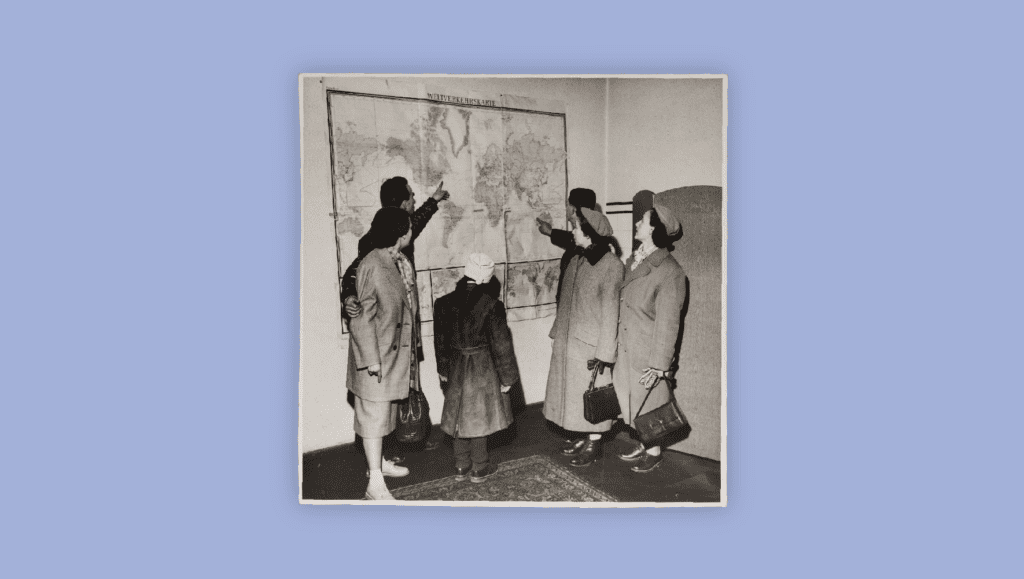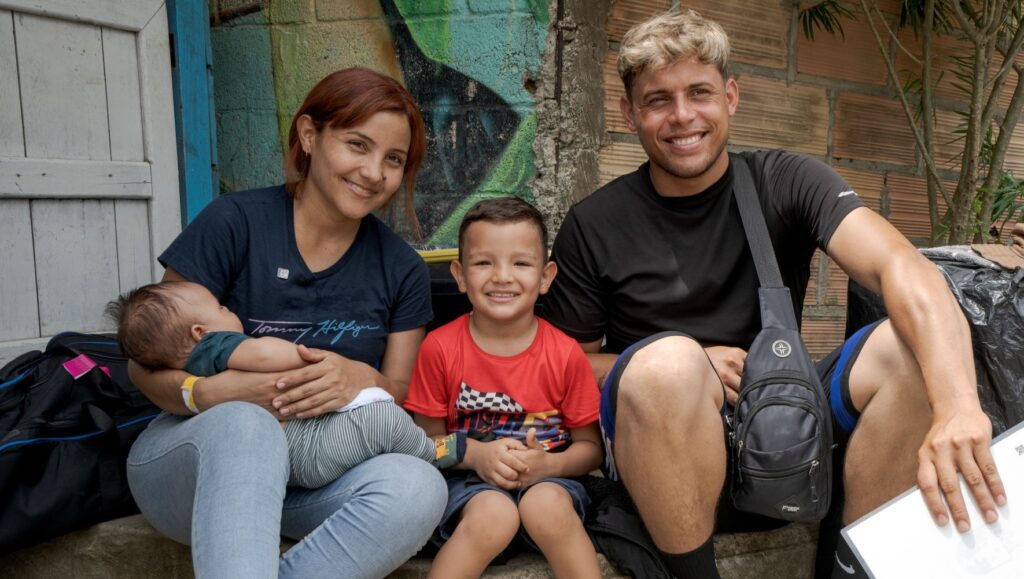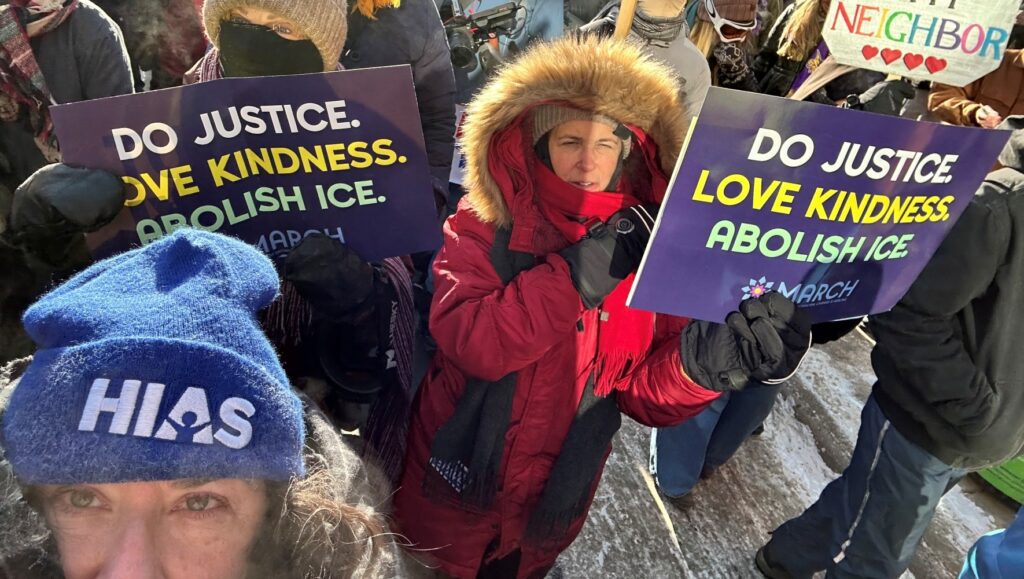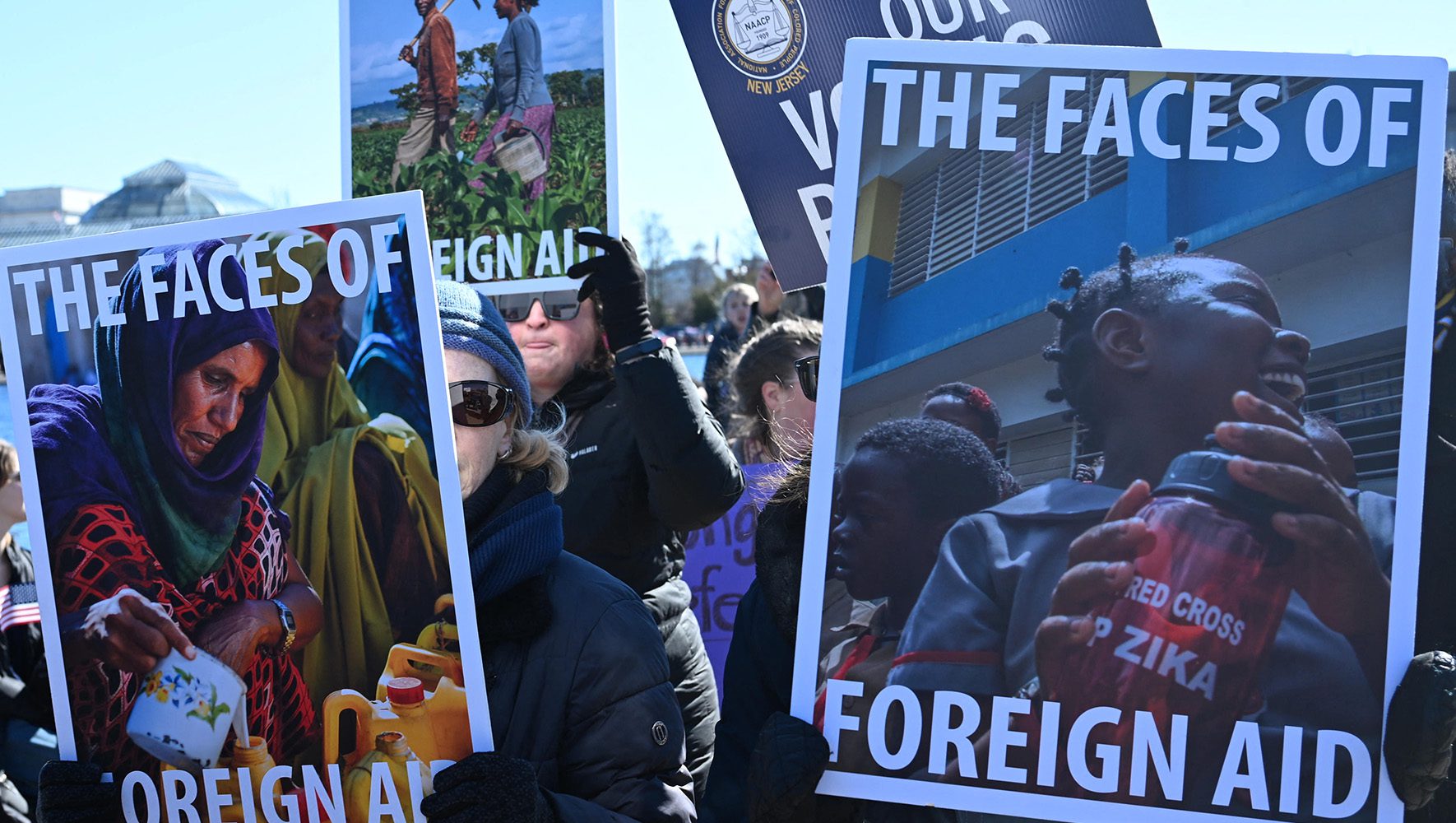
Since taking office, President Trump has issued hundreds of executive orders, memoranda, and proclamations, many of which pertain directly to immigration, asylum, and refugee resettlement. These actions, along with additional executive orders and legislation expected in the weeks and months ahead, are poised to reshape United States policy in a significant way.
In response, HIAS has launched a series summarizing important developments and explaining what they mean. These recap posts, along with relevant articles, statements, and resources, can be found at a page we’ve built to track the new administration’s effect on displaced people.
This week, we review how actions taken during Trump’s fifth week in office impact refugees and other displaced people.
The U.S. Government Continues to Withhold Funds in Defiance of Court Order
What happened: The U.S. government continues to withhold funds from international aid organizations, including HIAS, despite a Temporary Restraining Order (TRO) issued on February 13 that temporarily lifted the suspension of foreign assistance spending. Even programs that have received a waiver to this freeze through the government’s formal process have not received any funding to continue their lifesaving work. The TRO was issued in response to a lawsuit filed by HIAS and several other humanitarian organizations on February 11.
On February 20, HIAS and its co-plaintiffs filed a response to the U.S. government’s claim, issued in a status report two days earlier, that their actions comply with the court order. In strong terms, the response states “since the Court entered its [TRO], Defendants have not distributed a single dollar of the hundreds of millions owed and due to Plaintiffs.” The same day, the court found the U.S. government had “not complied with the terms of the February 13 TRO” and continue their “blanket suspension” of foreign assistance funding.
What it means: The Trump administration’s freeze on foreign assistance has left millions of people around the world vulnerable to disease, illness, hunger, and harm. It has also caused immense damage to and financial strain for organizations across the humanitarian sector. The freeze threatens the lives and well-being of 450,000 HIAS clients by pausing programs including protection for displaced and at-risk children, mental health and psychosocial support, economic inclusion programs, and protection against trafficking and violence facing women and girls around the world. In addition to stopping new work, the government has also failed to reimburse organizations for months’ worth of services carried out before the suspension of foreign assistance.
U.S. Government Shortens Temporary Protected Status (TPS) for Haitians
What happened: On February 20, the Department of Homeland Security (DHS) announced it would shorten the period of designation for Haitians with TPS in the United States. TPS provides protections against deportation and employment authorization to individuals from countries that the U.S. government considers too unsafe to return to. Under the Biden administration, TPS for Haiti was extended until February 3, 2026. TPS protections for Haitians will now expire six months earlier, on August 3, 2025. This will affect over 420,000 Haitians in the U.S. who have or qualify for TPS.
What this means: This announcement will place thousands of law-abiding and hard-working Haitians in the United States at risk of deportation in less than six months. The U.S. State Department recognizes Haiti as very unsafe due to widespread violent crime, kidnapping, and civil unrest. While the February 20 announcement asserts “that significant developments were taking place in 2024 that might result in an improvement in conditions,” DHS provides no evidence to support any improvement in conditions. Removing Haitians will place them in imminent danger and ignores their economic and social contributions to the United States.

We Must Combat Xenophobia. Here’s How We Can.
Read MoreU.S. Government Responds to Lawsuit Challenging the Suspension of Refugee Resettlement
What happened: On February 19, the U.S. government filed a response to a HIAS lawsuit challenging the Trump administration’s indefinite suspension of the U.S. Refugee Admissions Program (USRAP). The response alleged that the president has broad legal authority under the U.S. Constitution and federal statute to suspend refugee admissions. A hearing before a federal judge in Seattle is scheduled for February 25. HIAS will provide more information about the hearing once it becomes available.
The lawsuit, filed on February 10 by HIAS along with two other resettlement agencies and nine individual plaintiffs, also challenged stop work orders issued by the State Department that curtailed critical services for refugees in the United States.
What it means: Tens of thousands of refugees have had their plans to resettle or reunify with family blocked indefinitely. Because of the U.S. government’s actions, “there are now people stranded all around the world after they’ve undergone years of standing in line to be vetted and approved for resettlement in the U.S.” said HIAS President Mark Hetfield. The indefinite suspension of USRAP ignores the social and economic contributions of refugees in the United States.
Uncertainty and Concern in Congress’ Budget Resolutions
What’s happening: Congress began the process of budget reconciliation to fast-track the passage of spending bills for the federal government’s upcoming fiscal year. The implications for immigration policy and law enforcement in the United States are significant. The spending priorities of the Republican majority in Congress include large investments in border security, mass deportation, immigration detention, and deputizing state and local law enforcement in immigration enforcement.
What it means: The spending priorities on immigration in the budget resolutions are misguided and harmful. They are motivated by unsubstantiated claims and false narratives that criminalize and denigrate immigrants, refugees, and asylum-seekers. While members of Congress justify these spending priorities as making communities safer and more prosperous, research shows that the crime rate declines as the immigrant share of the population grows and that immigration contributes to economic gains. The deterrence policies that inform these spending priorities are ineffective and fail to account for the humanitarian and legal needs of people who are fleeing persecution.
There are now people stranded all around the world after they’ve undergone years of standing in line to be vetted and approved for resettlement in the U.S.Mark Hetfield, HIAS president
Funding for Legal Assistance to Unaccompanied Minor Children in U.S. is Threatened
What happened: On February 18, organizations who provide critically needed legal representation and counseling to unaccompanied children received stop work orders to immediately cease their services. Currently, these legal service providers assist over 26,000 children, including children who are in government custody. These actions follow an attempt by the U.S. government on January 22 to suspend funding to and cease all work by organizations who provide legal advice and access to resources to vulnerable individuals in immigration detention.
On February 21, the stop work orders were rescinded, allowing organizations to continue providing essential services to unaccompanied minor children.
What it means: Children who lack legal representation in the immigration system are especially vulnerable to abuse, exploitation, and violations of their due process rights. For over 20 years, government-funded legal programs for unaccompanied minors have safeguarded children against dangers such as trafficking and removal to countries where they risk persecution. Forcing young children to represent themselves in courtrooms is morally unconscionable, undermines due process, and violates the government’s duty of care to children in their custody. News of the February 21 rescission of the stop work orders is a welcoming, positive development.
Immigrant Rights Organization Asks Court to Block the Return of “Remain in Mexico”
What happened: On February 11, the Immigrant Defenders Law Center filed a motion in federal court to immediately halt the planned reimplementation of the Migrant Protection Protocols (MPP), better known as “Remain in Mexico.” The resumption of MPP was announced by the Department of Homeland Security on January 21. MPP was a “deterrence-only” border policy that began during the first Trump administration and forced approximately 68,000 asylum seekers to wait in Mexico while their asylum proceedings were pending in the United States.
What it means: Restoring MPP violates domestic and international treaties by returning asylum seekers to violence and harm in Mexico. In an August 2021 report, Human Rights First reported at least 6,356 kidnappings, sexual assaults, and other violent attacks against individuals blocked at ports of entry and expelled to Mexico under policies like MPP. It is currently not known if the second Trump administration has begun the reimplementation of MPP on the southern border and there are no publicly reported cases of individuals placed in MPP since January 21. But if the policy is reimplemented, there is no reason to believe asylum-seekers will be safe and able to access legal representation.
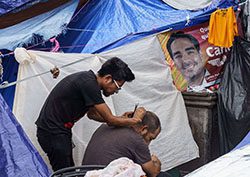
The Tragedy of “Remain in Mexico”
Read MoreThe U.S. Government Reports All Detainees in Guantanamo Were Removed to Venezuela
What happened: On February 12, immigrant rights advocates, including long-time HIAS partner Las Americas Immigrant Advocacy Center, filed a lawsuit requesting access to detained individuals in Guantanamo Bay, Cuba, to provide them with legal assistance. Over 170 immigrants were moved there in response to the second Trump administration’s Executive Order expanding the detention capacity for migrants on the U.S. Naval Base.
On February 20, the U.S. government responded to the lawsuit, alleging that the detainees do not have a statutory right to counsel. Within a few hours of that response, the U.S. government filed a second motion notifying the court that the Department of Homeland Security had removed the 178 immigrant detainees in custody from Guantanamo. According to the U.S. government, “most of the detainees were removed for repatriation to Venezuela.”
What it means: The detention of individuals apprehended in the United States in U.S. facilities in Guantanamo Bay was unprecedented. The U.S. has historically used Guantanamo Bay to hold enemy combatants apprehended in war or individuals intercepted at sea. The Trump administration had released very little information about the status of the individuals held in their custody. As the lawsuit stated, individuals detained in Guantanamo lacked regular access to meet with lawyers to assist them. After the government’s claim that all detainees were removed from the U.S. Naval Base in Guantanamo, it remains unknown how the facility will be used in the future to further the U.S. government’s efforts to expand the deportation and detention of migrants.
